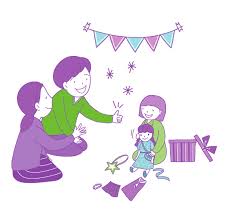지적 장애를 가진 11살 아름이는 “놀 곳”이 없습니다. 아름이가 마음 편히 뛰어 놀 수 있는 놀이
터를 찾아서 아름이 어머니는 매일 한 시간씩 차를 타고 한 장애인 종합 복지관의 실내 놀이터를
찾습니다. 전국 6만 여개 놀이터 중 처음부터 장애 아동이 이용할 수 있도록 설계·조성된 “무장애 놀이터”는 3곳에 불과합니다. 비장애 아동과 “함께” 어울리기는 더 어렵습니다. 장애 아동을 염두해 설치된 놀이 시설은 비장애 아동의 흥미를 끌기엔 지나치게 단순합니다. 또한 “장애 아동을 바라보는 불편한 시선과 편견이 만들어 내는 차별이 취학 전 놀이터에서부터 이들을 분리해 “장벽”을 만드는 게 우리의 현실”이라고 한 전문가는 지적했습니다.
A-reum, an 11-year old who has intellectual disabilities, has no place “to play”. To go to a playground where A-reum can comfortably play around, A-reum’s mother visits the indoor playground in a welfare center for disabled people every single day, which is an hour away by car. Out of more than 60,000 playgrounds throughout the country, there are only 3 “barrier-free playgrounds” that were designed and built from the beginning so that disabled children can use them. It is even more difficult to play “together” with children with no disabilities. The playing facilities installed with disabled children in mind is way too simple to attract the interest of children without disabilities. An expert also pointed that “our reality is that the discrimination that is made by the uncomfortable gaze and prejudices toward disabled children creates a “barrier” by separating these children even from pre-school playgrounds.”
Audio:
Study Notes
놀 곳 없는 장애 아동들, 어른들의 편견 탓
= Disabled children have no place to play, due to the prejudices of adults.
•놀다 to play
•곳 place
•장애 disability
•아동 children
•어른 adult
•편견 prejudice
•탓 due to
지적 장애를 가진 11살 아름이는 “놀 곳”이 없습니다.
= A-reum, an 11-year old who has intellectual disabilities, has no place “to play”.
•지적 장애 intellectual disability
아름이가 마음 편히 뛰어 놀 수 있는 놀이터를 찾아서 아름이 어머니는 매일 한 시간씩 차를 타고한 장애인 종합 복지관의 실내 놀이터를 찾습니다.
= To go to a playground where A-reum can comfortably play around, A-reum’s mother visits the indoor playground in a welfare center for disabled people every single day, which is an hour away by car.
•마음 편하다 to feel comfortable/easy
•뛰어 놀다 to romp around, to play around
•놀이터 playground
•종합 복지관 welfare center
•실내 inside
•찾다 to look for, to search for
전국 6만 여개 놀이터 중 처음부터 장애 아동이 이용할 수 있도록 설계·조성된 “무장애 놀이터”는 3곳에 불과합니다.
= Out of more than 60,000 playgrounds throughout the country, there are only 3 “barrier-free playgrounds” that were designed and built from the beginning so that disabled children can use them.
•전국 whole country, nationwide
•이용하다 to use
•설계 plan, design
•조성 making, creation
•무장애 barrier-free
•불과하다 to be only, to be not more than
비장애 아동과 “함께” 어울리기는 더 어렵습니다.
= It is even more difficult to play “together” with children with no disabilities.
•비장애아동 children without disabilities
•어울리다 to get along with
•어렵다 to be difficult
장애 아동을 염두해 설치된 놀이 시설은 비장애 아동의 흥미를 끌기엔 지나치게 단순합니다.
= The playing facilities installed with disabled children in mind is way too simple to attract the interest of children without disabilities.
•염두하다 to consider, to have something in mind
•설치되다 to be equipped, to be installed
•놀이 playing, game
•시설 facility
•흥미 interest
•(흥미를) 끌다 to attract (someone’s interest)
•지나치다 to be excessive, to be too much
•단순하다 to simple
또한 “장애 아동을 바라보는 불편한 시선과 편견이 만들어 내는 차별이 취학 전 놀이터에서부터 이들을 분리해 “장벽”을 만드는 게 우리의 현실”이라고 한 전문가는 지적했습니다.
= An expert also pointed that “our reality is that the discrimination that is made by the uncomfortable gaze and prejudices toward disabled children creates a “barrier” by separating these children even from pre-school playgrounds.”
•바라보다 to look at
•불편하다 to be uncomfortable
•시선 one’s eyes, one’s gaze
•만들어 내다 to make
•차별 discrimination
•취학 entering school
•분리하다 to divide, to isolate
•장벽 wall, barrier
•현실 reality
•지적하다 to point out


First of all, thanks for the hard work to keep a blog like this! I found out a couple of weeks ago, and I've been addicted to this blog since then!
By the way, I noticed that the dedicated "audio" box has no audio of the article. I would really love if I could listen to it.
Thank you! 🙂
really great site , it helps a lot lot thks